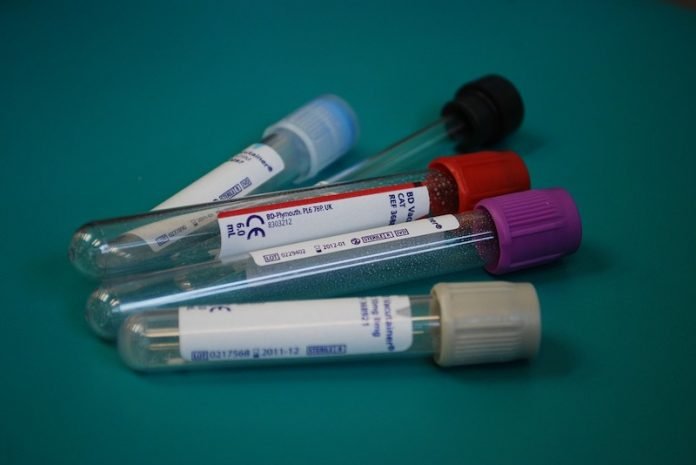
In a new study, researchers have developed a new blood test for faster, cheaper and more accurate detection of Alzheimer’s disease.
This means doctors may one day be able to diagnose Alzheimer’s disease and monitor a patient’s response to treatment by doing a simple blood test.
The research was conducted by a team from the National University of Singapore.
Alzheimer’s disease is the most common cause of dementia. Due to the complex and progressive nature of the disease, early detection and intervention can improve the success of disease-modifying therapies.
Unfortunately, the current diagnosis and monitoring are subjective and the disease tends to be detected only at a late stage.
Other alternatives such as PET imaging and cerebrospinal fluid test are either too expensive for the general public or require invasive lumbar punctures.
Blood-based tests have the advantage of being safe, affordable and easy to use.
However, blood has very low concentrations of Alzheimer’s molecules, and not all of these molecules are disease-reflective, making detection and diagnosis very difficult.
In the study, the team used the APEX (Amplified Plasmonic EXosome) system they developed.
The APEX system is designed to pick up an early-stage molecular marker of AD, the aggregated amyloid beta (Aβ). It could potentially diagnose AD even before clinical symptoms appear.
This novel technology is highly sensitive and provides an accurate diagnosis compared with brain PET imaging, the current gold standard for AD diagnosis.
In addition, the new blood pressure costs only about S$30 per test, which is less than one percent of the cost of PET imaging.
The new design could test 60 samples simultaneously and results are available in less than one hour.
As the APEX system uses native blood plasma without additional sample processing, it conducts direct measurement and is very simple to use in clinical settings.
The new blood test is a big step forward by providing a solution to effectively ‘capture’ and measure the most meaningful AD molecules in blood samples and amplify them for analysis.
In the next phase of research, the team hopes to use the technology in areas of Alzheimer’s disease management as well as for the evaluation of therapeutics under development.
The lead author of the study is Assistant Professor Shao Huilin from the NUS Institute for Health Innovation & Technology.
The study is published in the prestigious scientific journal Nature Communications.
Copyright © 2019 Knowridge Science Report. All rights reserved.



